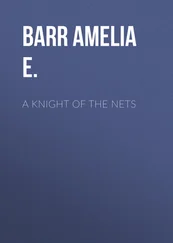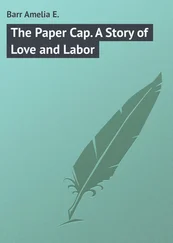Amelia Barr - A Daughter of Fife
Здесь есть возможность читать онлайн «Amelia Barr - A Daughter of Fife» — ознакомительный отрывок электронной книги совершенно бесплатно, а после прочтения отрывка купить полную версию. В некоторых случаях можно слушать аудио, скачать через торрент в формате fb2 и присутствует краткое содержание. Жанр: foreign_prose, foreign_antique, на английском языке. Описание произведения, (предисловие) а так же отзывы посетителей доступны на портале библиотеки ЛибКат.
- Название:A Daughter of Fife
- Автор:
- Жанр:
- Год:неизвестен
- ISBN:нет данных
- Рейтинг книги:4 / 5. Голосов: 1
-
Избранное:Добавить в избранное
- Отзывы:
-
Ваша оценка:
- 80
- 1
- 2
- 3
- 4
- 5
A Daughter of Fife: краткое содержание, описание и аннотация
Предлагаем к чтению аннотацию, описание, краткое содержание или предисловие (зависит от того, что написал сам автор книги «A Daughter of Fife»). Если вы не нашли необходимую информацию о книге — напишите в комментариях, мы постараемся отыскать её.
A Daughter of Fife — читать онлайн ознакомительный отрывок
Ниже представлен текст книги, разбитый по страницам. Система сохранения места последней прочитанной страницы, позволяет с удобством читать онлайн бесплатно книгу «A Daughter of Fife», без необходимости каждый раз заново искать на чём Вы остановились. Поставьте закладку, и сможете в любой момент перейти на страницу, на которой закончили чтение.
Интервал:
Закладка:
It was an exquisite morning; the sea was dimpling and laughing in the sunrise, and great flocks of hungry white sea-birds were making for the Firth. Maggie folded her plaid around her, and walked to the little pier to see the boat away; and as she stood there, the wind blew the kerchief off her head into the water; and she saw Campbell lean forward and pick it up, and then nod back to her an assurance of its safety. She turned away half angry at herself for the thrill of pleasure the trifling incident had given her. "It's my ain folk I ought to be thinking o', and no strangers; it's the dead, and no the living that ought to be in my heart. Oh Maggie Promoter, whate'er has come o'er you!"
To such reflections she was hasting with bent head back to her cottage, And trying to avoid a meeting with any of the few men and women about so early. But she was soon sensible of a rapid step following her, and before she could turn her head, a large hand was laid upon her shoulder, and Angus Raith was at her side.
"Sae you thocht to shun me, Maggie."
"You are wrang there, I didna even see you, Angus."
"That's the God's truth. You havena e'en for any body noo, but that proud, fine gentleman that's staying wi' you."
"Be quiet, Angus. Hoo daur you say the like o'that? I ne'er saw the man's face until yestreen; you shouldna think ill o' folk sae easy."
"What does he want here amang fishers? They dinna want him, I'm vera sure. There's nae room for gentlemen in Pittenloch."
"Ask him what he wants. He pays for his room at Pittenloch; fourteen white shillings every week, he agreed wi' Davie for."
"Fourteen shillings!"
The magnitude of the sum astonished him. He walked silently by Maggie's side until she came to her door-step. He was a heavy-faced Celt; sallow, and dark-eyed; with the impatient look of a selfish greedy man. Maggie's resolute stand at her door-stone angered him, "I'm coming in a wee," he said dourly, "there are words to be said between us."
"You are wrang there too, Angus. I hae neither this, nor that, to say to you; and I'm busy the day."
"I spoke to your fayther and your brother Will, anent a marriage between us, and you heard tell o' it."
"Ay, they told me."
"And you let me walk wi' you frae the kirk on the next Sabbath.—I'm no going to be jilted, Maggie Promoter, by you."
"Dinna daur to speak that way to me, Angus. I never said I wad wed you, and I dinna believe I ever sall say it. Think shame o' yoursel' for speaking o' marrying before the tide has washed the footmarks o' the dead off the sea sands. Let go my hand, Angus."
"It is my hand, and I'll claim it as long as you live. And it will be ill for any ither body that daurs to touch it."
"Daurs indeed! I'll no be daured by any body, manfolk or womanfolk. You hae gi'en me an insult, Angus Raith, and dinna cross my door-stane any more, till you get the invite to do so."
She stepped within her open door and faced him. Her eyes blazed, her whole attitude was that of defiance. The passions, which in well-bred women are educated clean down out of sight, were in Maggie Promoter's tongue tip and finger tips. Angus saw it would not do to anger her further, and he said, "I meant nae harm, Maggie."
"I'll no answer you anither word. And mind what I told you. Dinna cross my doorstane. You'll get the red face if you try it." She could have shut the door, but she would have thought the act a kind of humiliation. She preferred to stand guard at its threshold, until Angus, with a black scowl and some muttered words of anger, walked away. She watched him until he leaped into his boat; until he was fairly out to sea. Then she shut and barred the door; and sitting down in her father's chair, wept passionately; wept as women weep, before they have learned the uselessness of tears, and the strength of self-restraint.
CHAPTER III
THE CAMPBELLS OF MERITON
"We figure to ourselves
The thing we like, and then we build it up
As chance will have it, on the rock or sand."
"About some act,
That has no relish of salvation in it."
Upon the shores of Bute, opposite the rugged, heathery hills of Cowal, John Campbell had built himself a splendid habitation. People going up and Down the Kyles were in the habit of pointing out Meriton Mansion, and of asserting that the owner had risen from extreme poverty to his enviable position. There was not a word of truth in this story. John Campbell was the youngest son of Campbell of Drumloch, a gentleman of ancient lineage, and of considerable wealth. Alexander, his elder son, inherited from him the castle of Drumloch and the lands pertaining to the name and the estate; to his younger son John he gave a large sum of money. With this money he opened a shipping house on the Broomilaw of Glasgow, and gradually built a fleet of trading vessels, which traversed every known sea. John Campbell's name had indeed become synonymous for enterprise, wealth and commercial honor.
The tie between the brothers was always an affectionate one; and when Alexander died early in life, he left his child and the estate in charge of John. The estate was much embarrassed, the child was a delicate girl of nine years. But when ten years had passed the conditions of both were changed; Mary Campbell had grown to a sweet and charming womanhood, and Drumloch had paid off its last shilling of mortgage, and was as desirable an estate as could be found in the west of Scotland.
During these ten years, one desire had dominated all others in John Campbell's heart—the marriage of his son Allan to the heiress of Drumloch. It seemed to him the most natural of events, and also the most desirable. It would keep the old family and name, in the old home. It had been his brother's dying wish. He might buy his son a much larger and finer estate, but with gold he could not buy the family associations, and the long, honorable lineage of Drumloch. The old keep could be enlarged and beautified; the lands lying far and near could be bought and added to its domain; and yet Allan could lawfully call himself, "Campbell of Drumloch."
Thus to establish on a broader and richer basis the old home of his Fathers was the grand object of John Campbell's life. He thought of it until it became almost a sacred duty in his eyes. For the Scotsman's acquisitiveness is very rarely destitute of some nobler underlying motive. In fact, his granite nature is finely marbled throughout with veins of poetry and romance. His native land is never forgotten. His father's hearth is as sacred as an altar in his memory. A bluebell or a bit of heather can bring tears to his eyes; and the lilt of a Jacobite song make his heart thrill with an impossible loyalty. Those who saw John Campbell on the Broomilaw would have judged him to be a man indifferent to all things but money and bills of lading. Those who saw him softly stepping through the old halls of Drumloch, or standing almost reverently before the hard grim faces of his ancestors, would have called him an aristocrat who held all things cheap but an ancient home and a noble family. His son Allan, as the future Campbell of Drumloch, was an important person in his eyes; he took care that he was well educated, and early made familiar with the leisure and means of a fine gentleman. And as Allan was intelligent and handsome, with a stately carriage and courtly manners, there seemed no reason why the old root should not produce a new and far more splendid line.
When Mary Campbell was nineteen, and her estate perfectly clear, it seemed to her uncle a proper time to consummate the hopes for which he had toiled and planned. He explained them fully to his son, and then said, "Now, Allan, go and ask Mary to be your wife. The sooner I see you in your own place, the happier I shall be."
A spirit of contradiction sprang up in the young man's heart, as soon as the words were uttered. Probably, it was but the development of an antagonism that had been lying latent for years. He remained silent so long, that his father's anger rose.
Читать дальшеИнтервал:
Закладка:
Похожие книги на «A Daughter of Fife»
Представляем Вашему вниманию похожие книги на «A Daughter of Fife» списком для выбора. Мы отобрали схожую по названию и смыслу литературу в надежде предоставить читателям больше вариантов отыскать новые, интересные, ещё непрочитанные произведения.
Обсуждение, отзывы о книге «A Daughter of Fife» и просто собственные мнения читателей. Оставьте ваши комментарии, напишите, что Вы думаете о произведении, его смысле или главных героях. Укажите что конкретно понравилось, а что нет, и почему Вы так считаете.












